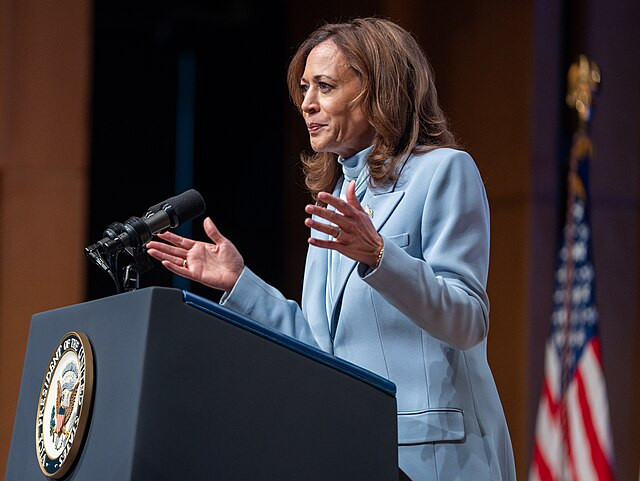Vice President Kamala Harris's devastating loss to Donald Trump in the 2024 presidential election has left Democrats scrambling to assess blame for their crushing defeat. In a historic setback, the party not only failed to retain the White House but also lost its Senate majority, with control of the House still undecided. The Supreme Court's conservative dominance, now solidified, looms large over the political horizon, reinforcing fears among progressives and moderates alike.
The finger-pointing within Democratic circles has begun in earnest. Some insiders believe that the decision to replace President Joe Biden with Harris was the fatal misstep, while others argue that Biden's late departure from the race left Harris with insufficient time to mount a cohesive campaign.
Harris's Campaign Under Fire
Harris, who became the de facto nominee without a primary, struggled to connect with voters in key demographics. Her campaign banked heavily on support from women, particularly women of color, and hoped to attract moderate Republicans. But despite intensive efforts, these groups did not turn out in sufficient numbers to secure a victory.
Progressive leaders, including Senator Bernie Sanders, blamed the Democratic Party for losing touch with working-class voters. "It should come as no great surprise that a Democratic Party which has abandoned working-class people would find that the working class has abandoned them," Sanders said. He pointed to rising inflation and economic strain, arguing that many voters did not see tangible benefits from the Biden administration's policies.
Harris's alignment with Biden's agenda further complicated her candidacy. Critics argued that she failed to establish a clear break from the administration, especially on contentious issues like the U.S. stance on Israel's actions in Gaza. This alignment alienated parts of the Democratic base, including progressives and Muslim and Arab American voters.
Biden's Legacy and Strategic Missteps
Biden's decision to withdraw from the race in July, under immense pressure from within the party, left Harris with a tight window to rally support. Bill Ackman, a prominent Democratic donor who supported Trump, accused the party of misleading voters about Biden's cognitive fitness. "The party lied to the American people about the cognitive health and fitness of the president," Ackman charged, calling for a "complete reboot" of the party's leadership and strategy.
A Harris campaign aide, speaking anonymously, described the challenges faced: "We ran the best campaign we could, considering Joe Biden was president. Joe Biden is the singular reason Kamala Harris and Democrats lost tonight."
Progressive vs. Centrist Divide
The choice of running mate also sparked controversy. Harris selected Minnesota Governor Tim Walz over more moderate figures like Pennsylvania Governor Josh Shapiro, a move criticized by centrist Democrats. Lindy Li, a Democratic National Committee official, suggested that the choice signaled a shift to the left, alienating moderates: "In the eyes of the American people, Walz was the governor who oversaw the protests."
Policy Backlash and External Factors
The Biden administration's handling of the Gaza conflict drew widespread criticism from international and domestic observers. The Uncommitted National Movement, a pro-Palestine group, laid the blame for Harris's loss at the feet of Democratic leaders, citing their perceived indifference to the humanitarian crisis. "This defeat underscores a deeper disconnection from our values and our people," the organization stated, pointing to a perceived lack of empathy from party leaders.
Exit polls reflected a significant shift among Black and Hispanic voters toward Trump. In 2020, Trump garnered just 8% of the Black vote; by 2024, that number had risen to 13%. His support among Hispanic voters also grew, from 32% in 2020 to 45% in 2024.
Harris's Concession and Reflection
In a concession speech delivered at Howard University, her alma mater, Harris struck a tone of resilience. "The outcome of this election is not what we hoped, not what we fought, not what we voted for," she said. "But hear when I say... the light of America's promise will always burn bright as long as we never give up and as long as we keep fighting."
Looking ahead, Democrats face the monumental challenge of rebuilding unity, reengaging with disaffected voters, and charting a path forward. As co-host of "The View" Sunny Hostin put it, the party must "speak truth to power" and "stick up to bullying," but it remains to be seen how the party will reconcile its fractured factions and connect with a broader electorate.






